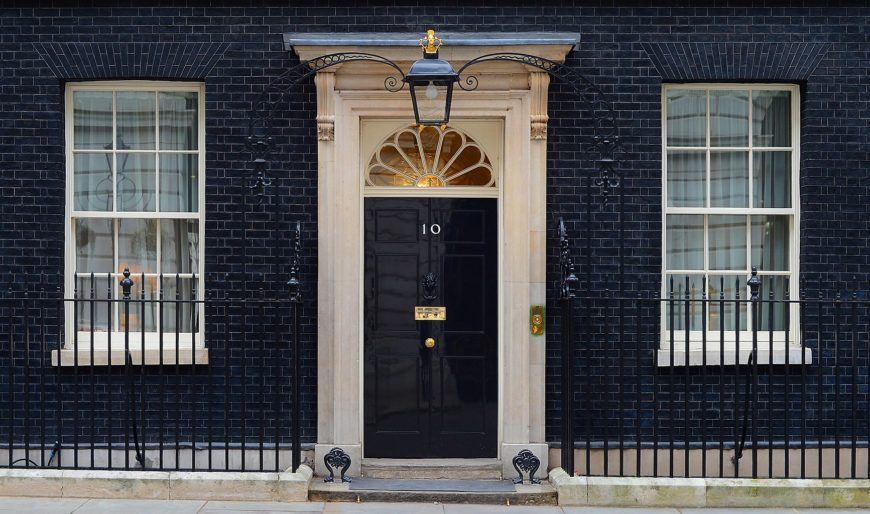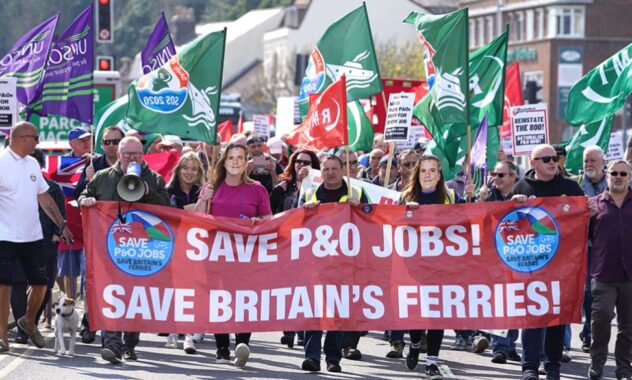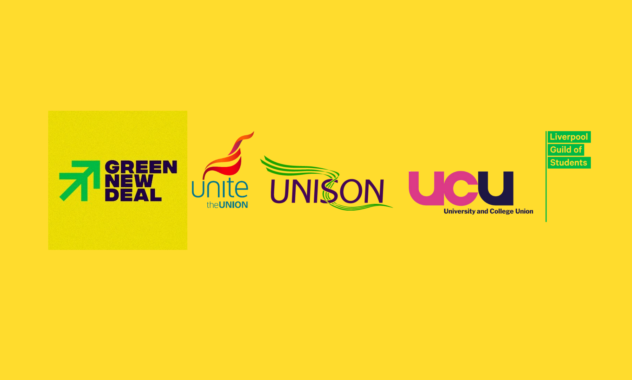Johnson and employment law – what we know so far
Happy New Year to all from everybody at the Institute of Employment Rights.

We kick off 2020 under a new government, and closer than ever to leaving the European Union. As the IER has detailed in previous reports, both events introduce uncertainty for UK employment law. A detailed report and briefing on the potential impact of Brexit on workers’ rights was published by Professor Nicola Countouris and our President Professor Keith Ewing last year, the relevance of which has only increased since the results of the general election were announced.
That election delivered a parliamentary majority for Boris Johnson’s Conservative Party, granting the government with the power to impose its will unfettered by the opposition. With all 330 Tory MPs voting in favour of the European Union (Withdrawal Agreement) Bill yesterday (Thursday 09 January), against 231 opposition votes, the legislation easily completed its passage through the House of Commons. It will now enter the House of Lords, where due to the Salisbury Convention – a time-honoured tradition by which the Lords will not oppose the deliverance of Manifesto promises – it is likely to be passed.
Brexit
Under the EU (Withdrawal Agreement) Bill, the UK will leave the EU on January 31 2020 and the government will aim to agree a Free Trade Agreement with the trade bloc within the following 11 months. This timeline has been widely criticised as unrealistic, and the withdrawal deal has been attacked for leaving UK citizens vulnerable to the erosion of employment rights and environmental protections.
Labour MP, Paul Blomfield, lamented that “there has been a disappointing and resolute refusal of the Government to seriously consider any amendments [to the Bill] however constructively intended”.
“Many were simply restoring previous Government commitments and others were to improve the Bill; none was to frustrate Brexit,” he added. “Over 100 amendments were tabled in Committee, but not a word of the Bill has changed.”
One of the main issues Labour pressed the government on was its insertion of Clause 33 into the Bill, which prevents any extension of the transition period between the UK leaving the EU and it agreeing a Free Trade Agreement with the EU.
Blomfield described this Clause as “a trapdoor to no deal at the end of December 2020” and a “gimmick”, but warned that “it would be impossible to reach a comprehensive trade deal by the end of 2020”.
SNP MPs reminded Parliament that Scotland voted to remain in the EU, passionately addressing the Commons on what they believe will be seen as a betrayal of Scotland.
“We must reflect on the fact that this is the first time that a part of the Union—a country of the Union—is having something done to it that it resents,” Ian Blackford, of the SNP, said. “This is a constitutional crisis. We will not and cannot accept what has been done to us.”
Public sector
NHS
In the Queen’s speech at the end of last year, the Conservatives cemented their plans to enshrine in law the NHS’s multi-year funding settlement. The details of this plan are yet to be announced. On the NHS’s workforce, the Queen’s speech did not include the much-touted Manifesto pledge for 30,000 new nurses (to much derision, Johnson repeatedly promised 50,000 with the caveat that 20,000 already work for the NHS….) However, it did include plans to provide a fast-track visa for qualified migrants to work in healthcare positions within the NHS.
The Tories also promised to seek a cross-party consensus on social care strategy, which may trigger interesting debate within Parliament. While the Conservative Party has focused on preventing care users from having to sell their home to pay for care, opposition parties have recognised that the root of the issues in social care can be found in the privatisation of the sector, deepened by austerity, which has led to a devaluing of social care work and a very high turnover of staff to match.
Further, the Conservative’s plans say little about how they plan to improve the conditions of work for those working in health and social care. The Health and Safety Executive this week warned that the rate of violent attacks on those working in the NHS and social care is three times that of other industries. The government stopped collecting data on assaults on NHS workers in 2016, but the HSE revealed that 22% of non-fatal incidents in health and social care were due to physical assaults and three out of six staff fatalities reported over the last five years were murders committed by violent patients. Unison reported that there were 56,435 physical assaults on NHS staff in 2016-17.
As a result of these figures, the HSE conducted inspections of 38 NHS Trusts and found 25 of them were in breach of health and safety law when it comes to protecting staff against attacks made by patients and the public, and 21 had broken laws around manual lifting. Seven trusts were given improvement notices around violence and aggression and eight receive notices on manual handling.
Civil service
Rachel Wolf, a Tory adviser who had a hand in drawing up the Conservative Manifesto during the last General Election, has written in the Daily Telegraph that Boris Johnson is preparing to make “seismic” changes to the Civil Service. Details have not been forthcoming, but Ms Wolf said the reforms aimed to change an alleged culture of staff changing job “every 18 months”. The news coincided with a blogpost by Dominic Cummings, Boris Johnson’s most senior adviser, calling for “misfits with odd skills” to contact him by a personal email address for a job in Whitehall.
Wages
The Conservatives have now confirmed that they will raise the National Living Wage to 60% of median income this April. The new level, which only applies to workers over the age of 25, will be set at £8.72, an increase of 6.2%. This falls dramatically short of the Conservative target, set in 2015, to raise the National Living Wage to £9 by 2020, and shorter still of the Real Living Wage – the amount it takes to cover basic living costs – of £9.30 outside of London and £10.75 within the capital. The new administration has also backtracked on its Manifesto pledge to raise the National Living Wage to £10.50 by 2024 by adding the caveat that this depends on “economic conditions”. Eagle-eyed readers may have noticed that this get-out clause had already appeared on the Treasury website before polling day, but it was not included in the Party’s Manifesto or publicly announced until after the results had come in.
Meanwhile, the UK’s biggest bosses celebrated Fat Cat Thursday on 09 January. This year, FTSE 100 CEOs had to work just 33 hours to take home the same amount of cash the average worker earns in a whole year, with an annual salary 120 times that of the average worker and 256 times that of an apprentice on the National Minimum Wage.
Elsewhere, a new analysis of official figures by think tank the Resolution Foundation has found that just 13% of employers who break National Minimum Wage laws are caught by HMRC.
Modern slavery
The number of suspected modern slavery victims waiting over two years for a decision on their case by the Home Office rocketed by 52% in the three months to September 2019, a Freedom of Information request made by the Scottish Refuge Council has revealed.
A rise of 21% in referrals to the National Referral Mechanism, which identifies modern slavery victims was reported in the same three months.
Flexible working
The Conservative government pledged within its first Queen’s speech to “encourage flexible working”. The Party’s Manifesto revealed that it plans to hold a consultation on introducing a right to flexible working, rather than a right to request flexible working, so long as employers do not have a genuine business reason to refuse. As previously seen in Theresa May’s consultation on worker representation on company boards, a consultation is not a promise, and depending on industry backlash this proposal could be substantially watered down. There is also currently no detail on any planned qualifying period to ‘earn’ the right for flexible working or whether it would be offered as a day one right.
The government also promises to “introduce the entitlement to leave for unpaid carers”, although it is worth noting there has been no hint so far that this time off would be paid.
Trade union rights
During the election period, Boris Johnson announced that he would put limits on the rights of transport staff to take industry action. This pledge made its way into the Queen’s speech, where it was announced that the government would ensure “minimum levels of service during transport strikes”. How this will be achieved and to what extent trade union rights will be weakened, as well as whether it will be limited to the transport sector, is yet to be revealed.
Human rights
The Queen’s speech also included a promise to “tackle vexatious claims” against the UK’s armed forces. This law is very likely targeted specifically at Irish citizens pursuing investigations into the conduct of British armed forces during the Troubles, which have been described as “vexatious” by some military authorities in comments derided as “insulting” by Sinn Fein.
However, policies floated before the election do not appear to limit themselves to claims made in bad faith. The government had proposed to exclude cases from before 2000 from the protection of the Human Rights Act, which would mean all events that occurred in Ireland during the Troubles would be exempt, regardless of their merit. Speaking before the election, former Attorney General, Dominic Grieve, said he was “staggered any government would consider” such proposals, warning that to push ahead may cause the UK to contravene the European Convention on Human Rights (ECHR) and lead to the nation’s withdrawal as a signatory to this historical international agreement.
Aside from the obvious moral implications of such a move, this could have a knock-on effect on both workers’ and trade unions’ rights, some of which are supported by the UK’s ratification of the ECHR.







